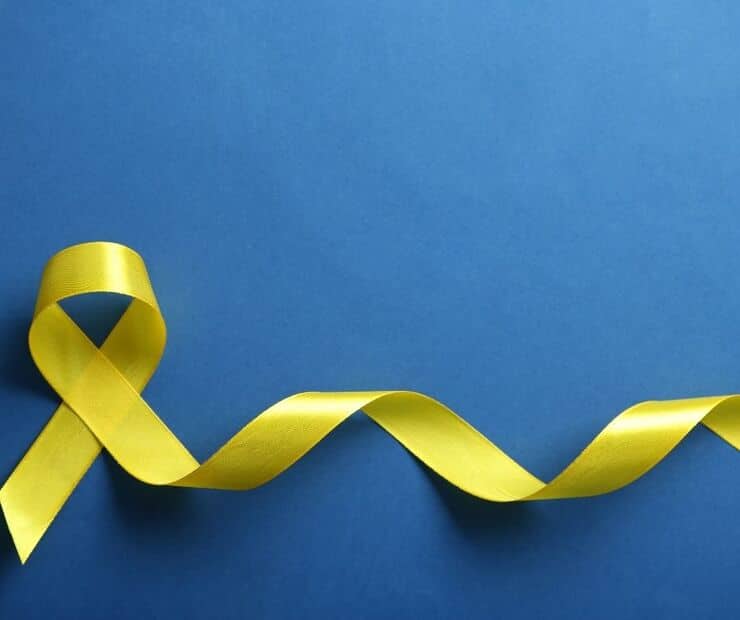
Teen suicide is an uncomfortable topic that is difficult to comprehend and so often unreported because of the extremely sensitive nature of the story.
We can’t be silent anymore.
The Centers for Disease Control and Prevention estimates 157,000 children are injured each year, and another 4,600 children die by suicide.
The Indiana Youth Institute recently reported Indiana has the highest rate in the nation of teens who have considered suicide and the second-highest rate in the nation in terms of teens who have attempted suicide.
Nick Sherbun was a junior at Penn High School who loved bass guitar, rugby, and writing for the local paper.“Nick was outgoing. He was everybody’s friend,” said Julia Sherbun of her son.
But this happy-go-lucky kid had a sensitive and vulnerable side.
“He, like many of the kids, basically had a way of blocking out those emotions to the outside, but comes across as everything was just great,” said Nick’s father Kevin Sherbun.
But it wasn’t.
On January 16, 2003, Kevin and Julia returned home to the most horrific scene.
“I walked back to his bedroom, and I opened up his bedroom door and he was sitting on the couch in his bedroom,” Julia remembered. “I thought he had his guitar between his legs. And it wasn’t a guitar.”
Instead, it was a .22 rifle that Nick used to shoot himself.
“Life as we knew it changed,” Kevin admitted.
“We’ve lost some incredible children,” said psychotherapist Dr. Erin Leonard. She wants people to know just how fragile teenagers can be.
“Kids can be very easily dismantled,” Leonard explained. “They can forget who they are very easily and feel worthless and undervalued and hopeless.”
Added pressure from social media, school schedules, and family life can be a lot for their still-developing brains.
“A lot of teenagers are dealing with hormonal shifts and brain chemistry shifts,” said Leonard. “And so they’re moody. “
Indiana Youth Institute President and CEO Bill Stanczykiewicz says the prevalence of teen suicide contemplation and attempts cannot be ignored.
“Indiana tragically leads the nation in the percentage of kids who contemplate suicide,” said Stanczykiewicz. “Twenty-one percent of kids — one in five — give thought to taking their own lives. Eleven percent actually attempt suicide. That’s the second-highest rate in the nation.”
“We hope to bring these data out into the public so that families know that they’re not alone, that they should watch for the warning signs. They should not feel any shame or stigma, and instead get the help that their children need,” said Stanczykiewicz.
The Sherbuns agree. They spent years speaking to school groups urging teens to ask for help.
“Mental illness is no different than physical illness,” said Julia. “If it’s something we can fix in you, as a parent I would’ve given anything to be given the chance to say, ‘Let’s fix it.’”
“The boyfriend-girlfriend breakup, or bad grades or whatever might be that throws them, that causes them to do what they do, we tell the kids, ‘Don’t make a permanent decision for a temporary problem,’” said Kevin.
“I’m still crying for the loss of my son,” Julia explained. “He will never be here. I will never get another hug. I will never get another kiss. I won’t see his babies. I won’t see him get married. I won’t know what he did for a job. It’s forever. For us, it’s forever.”
“If I could do anything to save another family from going through this,” said Julia, “I will do it, because it’s hell.”
The Sherbuns share their story with students as part of the Yellow Ribbon campaign. It’s a suicide prevention program in many area high schools. Cards with the yellow ribbon are given to kids, and if they ever need to talk to someone, they can turn in the card and receive help.
Learn more about the Yellow Ribbon Suicide Prevention Program at yellowribbon.org
Here are a few of the common warning signs of teen depression:
– A change in mood, behavior, sleep habits, or appetite
– Feeling hopeless or worthless
– A drop in grades
– Giving away prized possessions
For a list of more warning signs, visit www.teensuicide.us/articles2.html
If you or someone you know is thinking about harming themselves, please contact the National Suicide Prevention Lifeline at 1-800-273-talk or 1-800-273-8255. You can also text START to 741741.
Visit the American Foundation for Suicide Prevention website at www.afsp.org. We also have blogs for parents, Troubled Children, and Low Self-Esteem written by Dr. Leonard.
Dr. Leonard’s latest book Emotional Terrorism: Breaking the Chains of a Toxic Relationship is now available in paperback and ebook. Click to order today!
